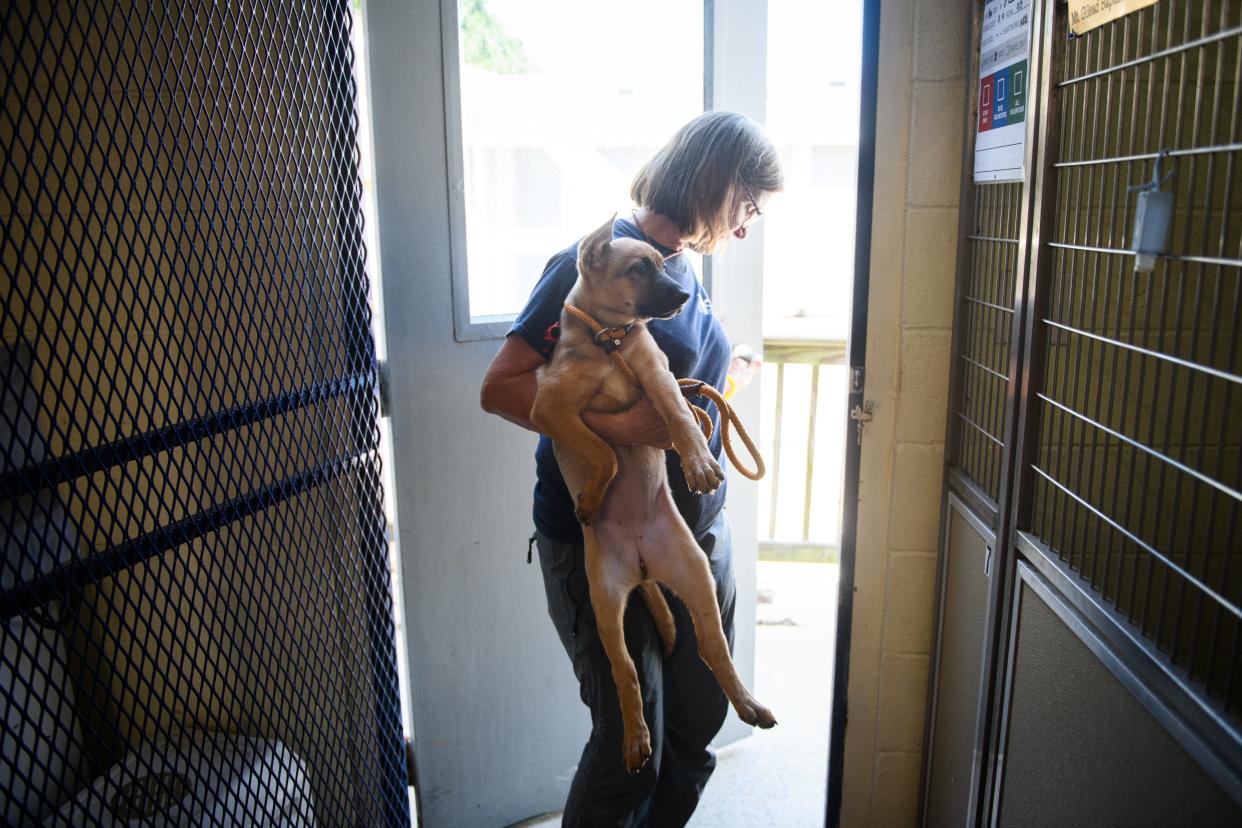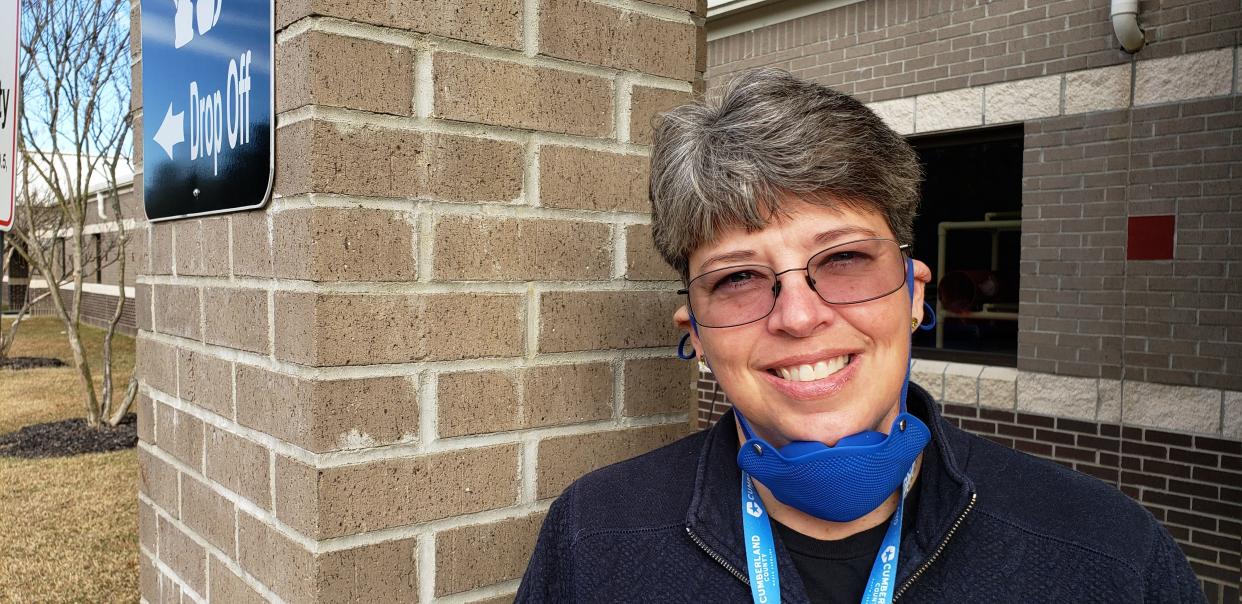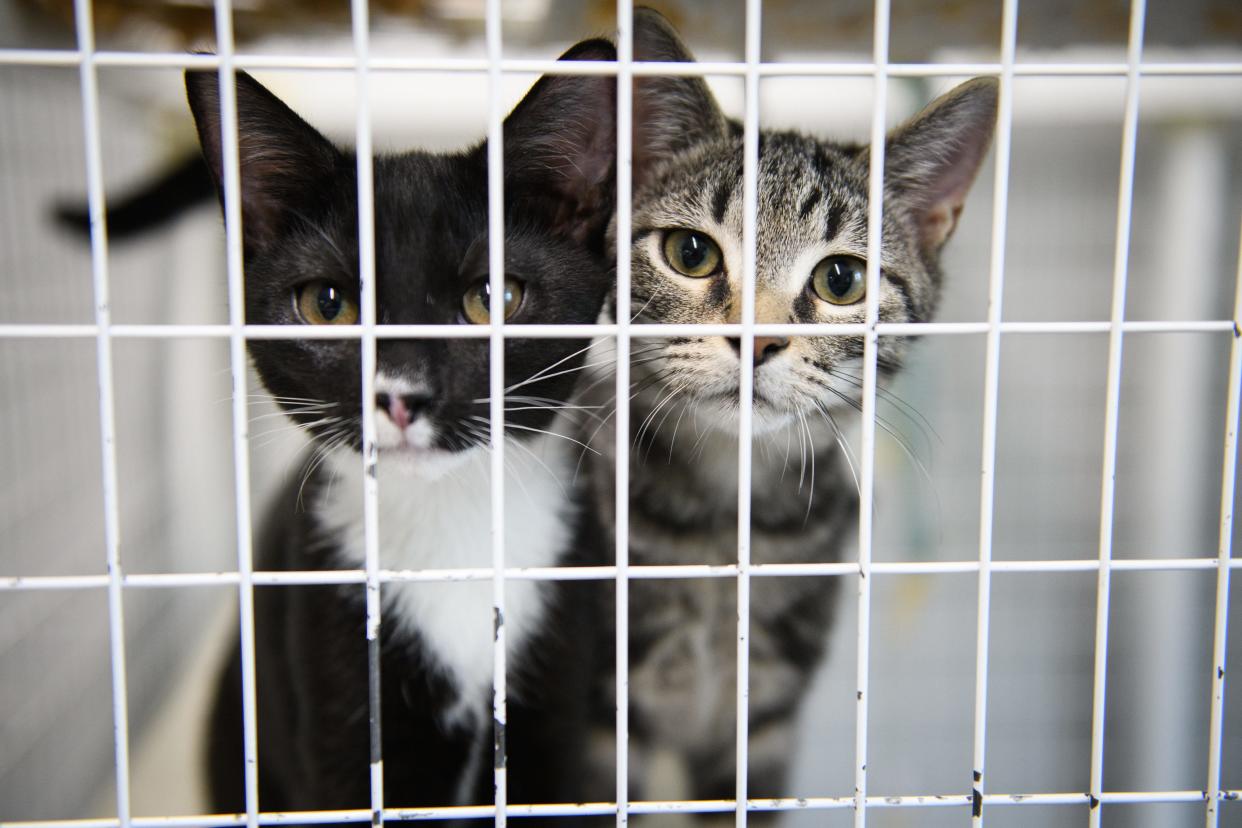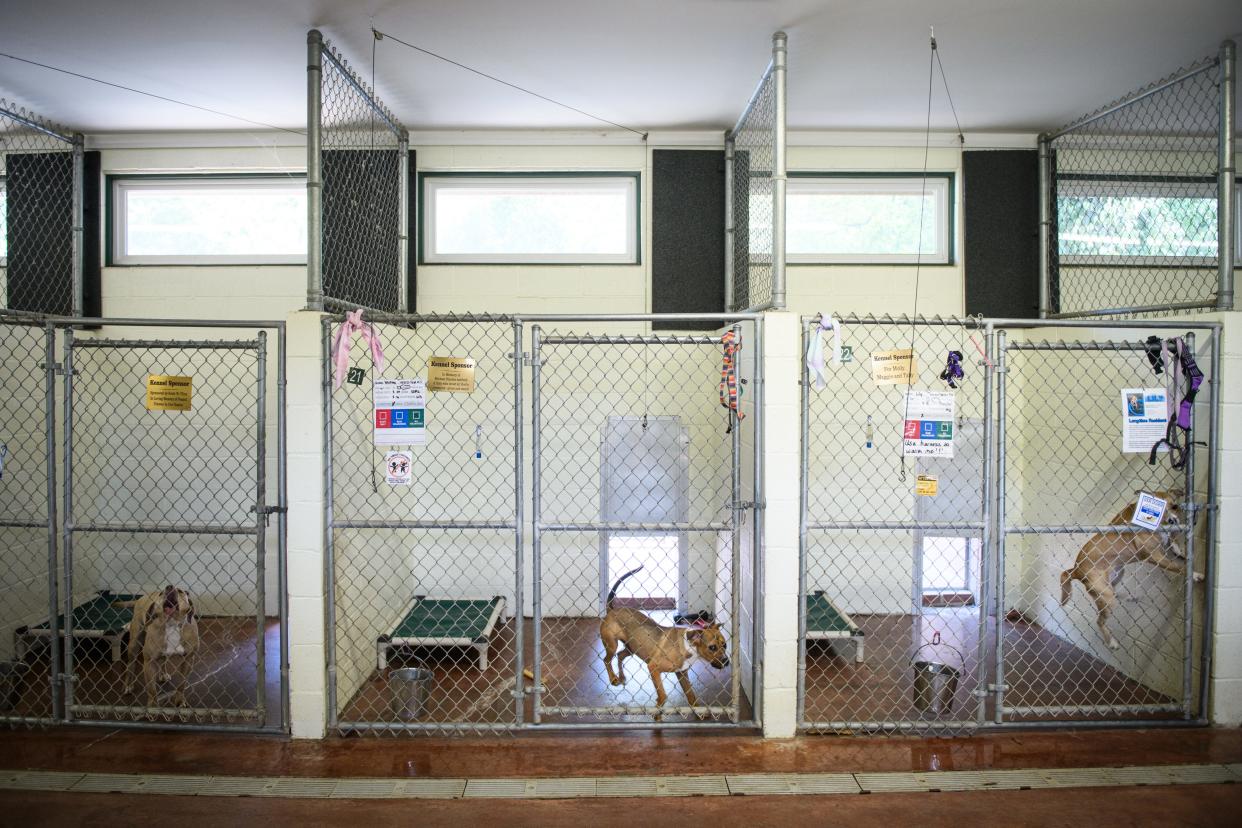The big return: Fayetteville shelters hit in national wave of surrendered dogs and cats
When a pet owner returns a dog or cat they adopted from the Fayetteville Animal Protection Society, it sets off a chain of events.
“The animal is now out of place and confused — again,” says Jackie Peery, executive director of the no-kill, nonprofit shelter on Bragg Boulevard. “It had a routine and life made sense. And now they come back to us and we have to start the process all over again.”
The already hard-working team at FAPS is seeing this difficult process play out more often these days.
The number of “returns” has doubled over the last year, Peery says. It has placed additional stress on workers and volunteers and stretches resources.
She says that “hopefully” the adopter kept their returned cat or dog up-to-date on vaccinations and medical care, but when that is not the case, FAPS staff gets it all taken care of.

The 'pandemic pets' play a role in the big return
The pet overflow FAPS is seeing is affecting all local shelters and is due to a combination of factors including what’s going on nationally, says Peery. She says factors include changes in ownership trends since the COVID-19 pandemic.
“Initially, there was a huge surge in adoption as people were spending more time at home and wanted companionship, and that makes sense,” Peery says. “But then as life kind of returned to 'normal' we’re seeing an increase in returns and surrenders, and that’s been really, really difficult, and that is also putting additional pressure on shelters and rescues that are already struggling with overcrowding.”
Pets from backyard kennels are becoming a more common problem, too, she says.

Other factors are the old standbys for crowded shelters in Cumberland County: Not enough owners who spay and neuter and the transient nature of a military town.
“We have animals being born faster than we can adopt them out,” Peery says.
A surge in dogs is stressing animal shelters nationwide
As for returned animals, Peery says of dogs, specifically, that sometimes new owners don’t understand canine adolescence.
“They think once a dog reaches a year old and it’s fully grown, that they should behave like an adult dog,” she says. “But the truth is, while they might physically mature, dogs in that age are still very much in their adolescence — just like teenagers, really. A 16-year-old may be full-grown but mentally they are not all the way there.”
The nation’s shelters have seen a surge in unwanted dogs, according to a TIME magazine report from the shelter front lines that describes the facilities as “overwhelmed and overflowing.”
Stephanie Filer, director of Shelter Animals Count, told TIME: “Shelters are quite literally at crisis and some of them are making the decision to close their doors or reduce hours of operation or reduce the kind of animals that they bring in.”

Dogs and cats show different trend lines in Cumberland County
Director Elaine Smith and her staff at Cumberland County Animal Services have also seen a surge in dog intakes.
“In the last year, we’ve taken in 421 more dogs than we did the year before,” she says. “That’s pretty significant. It's about a 10% increase in the number of dogs.”
She added: “The bottom line, it’s just gotten really difficult, especially with big dogs."
She said it has become a daily fight to make space to reduce the number of pets that staff euthanize.
Meanwhile, cat intakes have dropped slightly, which Smith attributes to a Trap-Neuter-Vaccinate-Release program for feral cats.
More on pet adoption: Pitts: Rosie & Ruthie — A love story
Smith also thinks the pandemic is a factor in the boom of pet surrenders. She speculates that the pets they are seeing now are offspring of the pandemic pets.
She says: “I think a lot of people did get pets during the pandemic, and due to the lack of accessibility for veterinary care, not as many of those pets were spayed or neutered, and now we’re seeing the repercussions.”
More people returning to work post-pandemic likely also led to more pets getting loose and roaming, she adds.

FAPS director: Patience running thin over pet owners' excuses
Peery, like Smith and just about everyone in their line of work, heavily promotes spay-and-neuter. And she is less patient with excuses as to why that can’t happen.
“Our community can no longer use the excuse of not having a low-cost spay-neuter clinic because we have one now off Bragg Boulevard,” she says, referring to the Spay Neuter Veterinary Clinic of the Sandhills. She said the clinic can subsidize costs, too, for people with lower incomes.
One of the most prevalent reasons people give for surrendering pets is that they’re moving, an excuse Peery says receives “zero sympathy” from her in 97% of cases.
“You knew you were going to be moving, especially if you’re military,” she says. “There are resources.”
Other times, she says, people will say they don’t have time for the dog anymore.
“You think the shelter does?” she asks.

'We're seeing whole litters.' What we can do
Smith highlighted the county’s Clear the Shelters event, which runs through the end of August and offers free adoptions. She said that one bright spot is that the shelter has had 152 more adoptions this year compared to last.
But she said that won’t make up for the surge in animals.
In the end: “As always, we need people to adopt, we need people to foster but the biggest thing is we have to get people to spay and neuter their pets,” she says.
“We’re seeing whole litters,” she says. “In the past, if we had a litter of puppies, boy, the rescues just pulled them right away and now, the rescues are full, everybody’s full. The whole system is backed up.”
Opinion Editor Myron B. Pitts can be reached at mpitts@fayobserver.com or 910-486-3559.
This article originally appeared on The Fayetteville Observer: 'We're seeing whole litters.' Fayetteville shelters ask public's help
